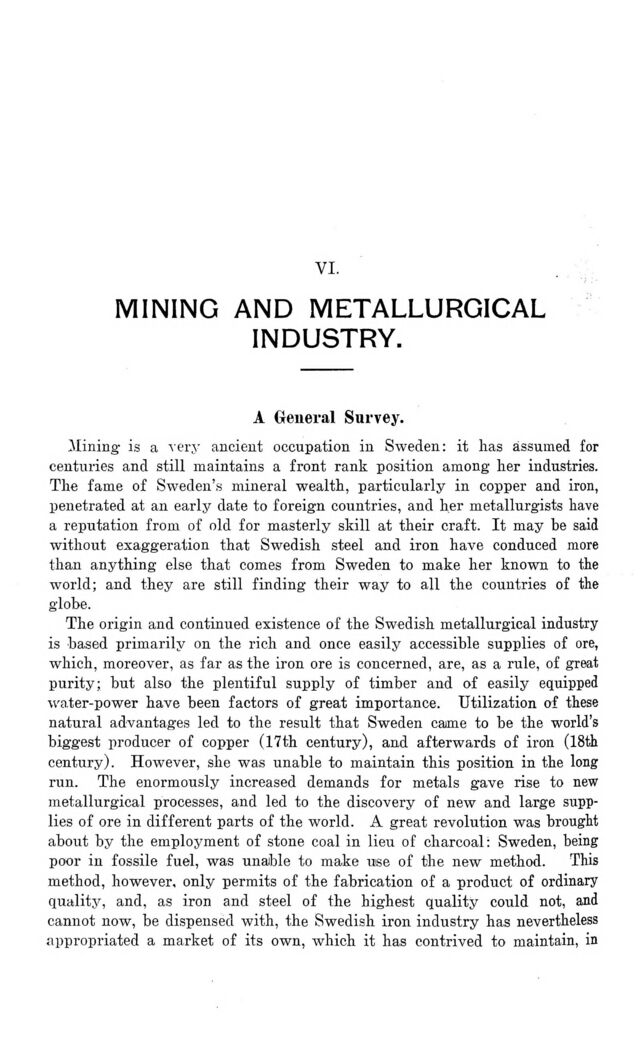
Full resolution (JPEG) - On this page / på denna sida - VI. Mining and Metallurgical Industry. General Survey. By C. Sahlin

<< prev. page << föreg. sida << >> nästa sida >> next page >>
Below is the raw OCR text
from the above scanned image.
Do you see an error? Proofread the page now!
Här nedan syns maskintolkade texten från faksimilbilden ovan.
Ser du något fel? Korrekturläs sidan nu!
This page has never been proofread. / Denna sida har aldrig korrekturlästs.
VI.
MINING AND METALLURGICAL
INDUSTRY.
A General Survey.
Mining- is a very ancient occupation in Sweden: it has assumed for
centuries and still maintains a front rank position among her industries.
The fame of Sweden’s mineral wealth, particularly in copper and iron,
penetrated at an early date to foreign countries, and her metallurgists have
a reputation from of old for masterly skill at their craft. It may he said
without exaggeration that Swedish steel and iron have conduced more
than anything else that comes from Sweden to make her known to the
world; and they are still finding their way to all the countries of the
globe.
The origin and continued existence of the Swedish metallurgical industry
is based primarily on the rich and once easily accessible supplies of ore,
which, moreover, as far as the iron ore is concerned, are, as a rule, of great
purity; but also the plentiful supply of timber and of easily equipped
water-power have been factors of great importance. Utilization of these
natural advantages led to the result that Sweden caime to be the world’s
biggest producer of copper (17th century), and afterwards of iron (18th
century). However, she was unable to maintain this position in the long
run. The enormously increased demands for metals gave rise to new
metallurgical processes, and led to the discovery of new and large
supplies of ore in different parts of the world. A great revolution was brought
about by the employment of stone coal in lieu of charcoal: Sweden, being
poor in fossile fuel, was unable to make use of the new method. This
method, however, only permits of the fabrication of a product of ordinary
quality, and, as iron and steel of the highest quality could not, and
cannot now, be dispensed with, the Swedish iron industry has nevertheless
appropriated a market of its own, which it has contrived to maintain, in
<< prev. page << föreg. sida << >> nästa sida >> next page >>